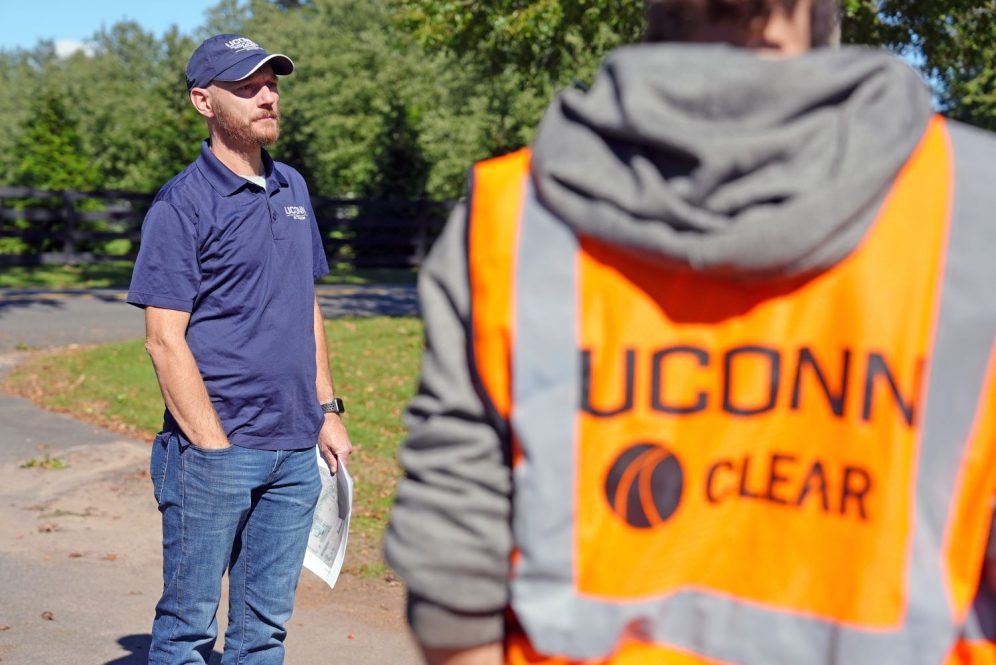The Land Use Academy, an Extension program in UConn’s Center for Land Use, Education and Research (CLEAR) provides land use decision makers in Connecticut with practical education. The 20-year-old program teaches communities to balance land use policies in a sustainable way. As populations increase and tensions persist between development and the environment, their programs are more important now than ever.
“The biggest issue or crisis we are facing is the lack of comprehensive, systemic planning, which leads to sprawl, overdevelopment, and otherwise inefficient land use development patterns,” says Renata Bertotti, an assistant extension educator. “We have not paid sufficient attention to our existing buildings and infrastructure and continue to fund development in greenfields instead of prioritizing, through planning, policy and investment, development where we already have existing infrastructure.”
Bertotti joined the UConn Extension team this summer and leads the Land Use Academy.
She saw the development versus environmental pressure firsthand working in Meriden, Newington, and Manchester and said that the Land Use Academy is important and timely.
“We have unprecedented housing pressure along with climate change, and both are big issues,” Bertotti says. “The federal government has allocated significant moneys for both, making decisions harder for municipal officials. Communities have to plan ahead of time for development so that it’s provided and intensified where it makes sense.”
Land use planning includes discussions on development use where infrastructure already exists, instead of developing greenfields. Municipal staff and volunteers that serve on boards and commissions want to learn how to be proactive in their communities, and that’s where the training comes in.
All land use commissioners are required to have four continuing education credits by January 1, 2024, and many participate in the Land Use Academy to fulfill the requirements. One credit must be in affordable housing and the other three credits can come from a variety of topics. After January 2024, the requirement is to have an additional four credits every four years.
“Land use training is required, and commissioners are clamoring for it,” says Dave Dickson, the director of CLEAR. “We offered an advanced training series, and over 365 people signed up, while additional people are accessing recordings too.”
The training informs land use decision makers on best practices and gives them tools and resources. Planning is one thing, but implementing and regulating add additional challenges and are tough, and that is another area where the training, tools, and resources are essential.
Land use attorneys are another example of class attendees, as are the zoning staff and volunteers. Thousands of people across the state volunteer on the different commissions in their municipality and staff members are also required to have training. Most municipalities in the state – 158 of the 169 – have staff or volunteers that participated in one or more of the Land Use Academy trainings since its inception.
“I went in wary, but really enjoyed the session – very informative and found there are some areas in which I’m not the ‘expert’ I thought I was,” says a Southern Connecticut Council of Governments Commissioner who recently participated.
Bertotti plans to offer more topical sessions in 2024, including on climate adaptation, while maintaining the core programs that the Land Use Academy is known for. These topical sessions are always popular with land use officials and volunteers, and include needed procedural education.
“The planning process also depends on who is involved, funding, and zoning processes,” Bertotti says. “It’s really important; we are in such a great position to educate people about how they can make a difference to all three over time.”
This work relates to the UConn’s College of Agriculture, Health and Natural Resources Strategic Vision area focused on Fostering Sustainable Landscapes at the Urban-Rural Interface.
Follow UConn CAHNR on social media



